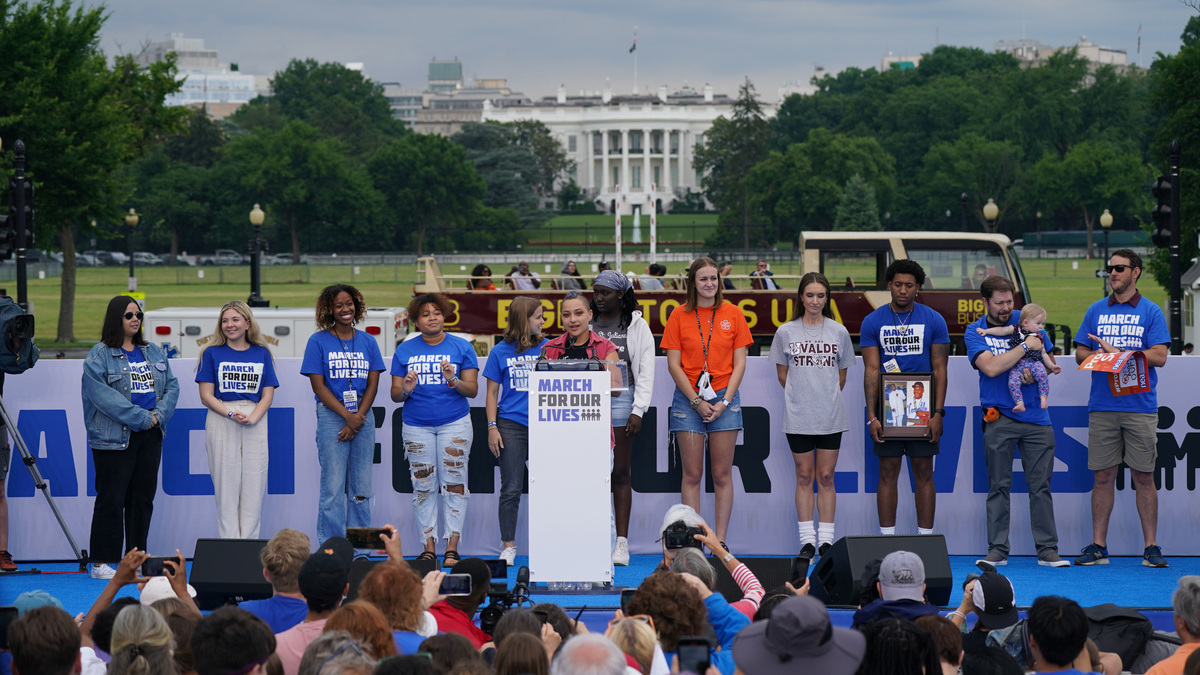
Activists at the March for Our Lives in 2022 in Washington, DC, advocating for legislation intended to prevent gun violence. It has been a defining issue for many Gen Z voters. Leigh Vogel/Getty Images for March For Our Lives hide caption

Activists at the March for Our Lives in 2022 in Washington, DC, advocating for legislation intended to prevent gun violence. It has been a defining issue for many Gen Z voters.
Leigh Vogel/Getty Images for March For Our LivesNext year Gen Z and Millennials will make up nearly half of the electorate. What exactly that will mean in the 2024 election is an open question.
Host Scott Detrow talks with NPR political reporter Elena Moore about the different ways new voters approach politics than older voters.
Email us at
This episode was produced by Connor Donevan and Emma Klein. It was edited by Adam Raney. Our executive producer is Sami Yenigun.

 Live Radio
Live Radio